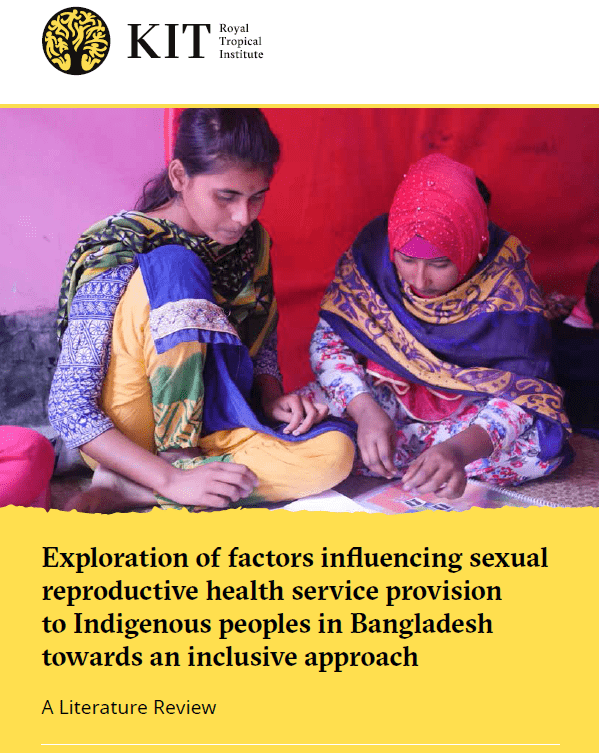Literature Review: Factors influencing sexual reproductive health service provision to Indigenous people in Bangladesh
Technical capacity of health workers to provide Sexual Reproductive Health (SRH) services and information to especially vulnerable people, including indigenous peoples, needs strengthening.
As input for the “We Care” project that works towards the strengthening of such an inclusive approach, a literature study was done looking into what is known regarding the indigenous peoples in Bangladesh in relation to SRH service delivery and information provision.
To identify the factors influencing SRH service access for indigenous peoples, an analysis of the factors was done on the basis of the WHO Framework for operationalizing sexual health and its linkages to reproductive health. A limitation thereby was that only very few studies exist that collectively only cover a fraction of the 52 indigenous communities living in the country, each with their own social and cultural identity.
A main finding that emerged from the literature review is that the limited information that exists mainly focusses on ‘Antenatal, intrapartum & postnatal care’ for indigenous women. Besides health system factors, cultural norms prescribe if and where to seek treatment for ailments during pregnancy, delivery and thereafter by these indigenous women. If you want to read more, please see the full article by clicking on the link:
The study has been authored by Edine Hiddink, Graduate School of Life Sciences, Master program- Bio Inspired Innovation, Sanjeeb Drong – President, Indigenous Peoples Development Services – IPDS and Pam Baatsen, Senior Advisor, Royal Tropical Institute/KIT.
The We Care programme is funded by the Orange Knowledge Programme/Netherlands Ministry of Foreign Affairs.


